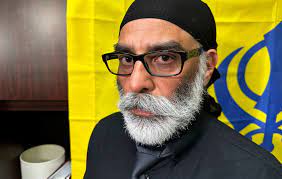Music by Mourner is given fresh life
“Kadakkudhey, namma nadu ippo coma la” means that our nation is now unconscious. The oppositional piece “Mosam Pochey,” which was first shared as an awareness film before the general elections of 2024, demonstrates how the art form changed from its custom of serving as a mournful ode to the deceased to becoming a weapon of resistance, a representation of social dissatisfaction, and a call for change.

Nowadays, musicians are combining modern styles with oppari to sing against oppression, social justice, untouchability, and caste. One of the most well-known examples of this is Arivu’s wildly successful song “Enjoy Enjaami.”
Because of the gender prejudice that only women are allowed to cry and grieve in public at funerals, while males are required to display anger, optari is often done by a group of women.
However, how did the art form develop? “Our art, literature, and music translate the loudness of the Tamil people’s way of life,” remarks A Chellaperumal, a folklorist, retired professor, and chairman of Pondicherry University’s anthropology department. For us, everything is a reason to celebrate. We fully experience all emotions, and we think it is appropriate to express them in public, whether they are joy, grief, or rage.
He claims that while the origins of oppari are unknown, the earliest known references to it may be found in Tamil literature. “Tholkappiyam” describes four different kinds of crying, one of which is categorized as “oppari” and is connected to death.
The art genre known as “suyam polambangal” (self-lament), according to author and oppari researcher Viniyan, was initially sung by all non-Brahmin women, not only dalit women.
After the economy expanded and education became more widely available, non-dalit tribes abandoned the practice.
“Compared to the middle and higher castes, the dalits had more difficulties, which is why oppari flourished among them. Many of the deceased were the only providers for their families, and lyrics like “You said you would return home with a bag of rice” would often appear in the songs. Now what do we feed these barren mouths and empty stomachs? How can I relieve the searing pain caused by your loss?
Dalit women often channel their sadness at the death of their own loved ones via oppari as a way to communicate their daily sorrows and worries. For these ladies, Oppari is a great place to vent their emotions since it gives them a platform. They may seem to be weeping for the deceased. Chellaperumal adds, “But they don’t even know that person; this is their way of expressing their own woes.”
Oppari is a kind of escape for Lalitha, a 40-year-old vocalist from the Ariyalur hamlet of Gangaikondacholapuram. “I’m always concerned about money issues and my life’s purpose. I don’t feel like my kids would understand, therefore I have no one to speak to about them with. That was the beginning of it. I was singing one day about how I was feeling, and the sensation of freedom kept me going. I became enamored with it and began expressing my emotions via words. Since I can’t read or write, I sing these songs from memory whenever they ask me to go to a funeral, the woman claims.
Over the last 28 years, M Arumugam from Ambedkar Nagar in Villupuram has defied conventions by singing oppari at his village funerals. “There’s nothing to be embarrassed about. I take great pride in doing this, since it is the art of my homeland and culture. Every time we attend a funeral, I gather a group of guys and pay them between Rs 100 and Rs 250. It’s not much, but I will keep singing my issues away since it gives me a satisfying sense of catharsis.
In contrast to other folk genres like lullabies, farmer’s songs, and religious songs, which tell the tale of the deceased person from birth to death, oppari does not contain explicit words for the music.
Kings and other members of the nobility often have life histories written down. According to Chellaperumal, this was the Tamil people’s manner of paying respect to the deceased and giving their life significance.
Folklorists find it difficult to document the history of oppari, however, since the elder generation is reluctant to do it without a reason. “Because village elders believe singing oppari without a funeral can bring bad luck, beautiful songs are often lost.”
“Oppari was never intended as a theatrical art form. However, when it gained recognition as a dalit art form, it was marginalized. The way people see the art form is changing thanks to the efforts of young musicians, but there is still more work to be done, adds Viniyan.







